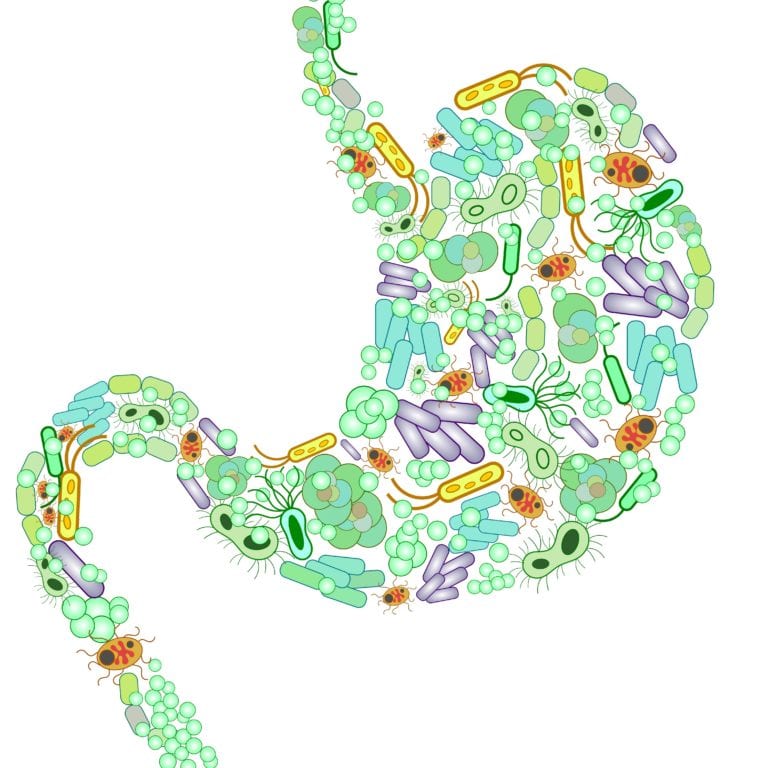 |
| With older age, microbiome changes are linked with degenerative disorders, potentially including those affecting the eye. Photo: Guts UK. Click image to enlarge. |
Editor’s Note: As part of our “Year in Review” retrospective, we’ve selected the top 30 news stories of the year and are re-sharing them as we close out 2023. Follow along as we count down to number 1!
This story was originally published September 22, 2023.
No. 7 biggest news story of 2023:
The gut microbiota (GM) comprises an array of microorganisms, including bacteria, viruses, fungi and archaea, all of which are important in various physiological and metabolic functions. While GM composition varies by age, diet, lifestyle and geographic location, certain bacterial species are common among healthy individuals, spanning Bacteroidetes, Firmicutes, Actinobacteria, Proteobacteria and Verrucomicrobia. GM dysbiosis, with changes to the typical microorganisms present, can result in various diseases, like intestinal, metabolic, autoimmune and neurological diseases.
Emerging among this has been recent talk of the gut-retina axis because of the retina’s unique tissue as related to immune response. More specifically, interest has been cultivated in the association between the GM and age-related macular degeneration, but any causal relationships have not yet been described. New research has changed this by analyzing publicly available genome-wide association study summary statistics and conducting two-sample Mendelian randomization.
After implementing various quality control techniques to select instrumental single nucleotide polymorphisms (SNPs) with strong exposure association, the researchers were able to detect some strong relationships. The genera of Anaerotruncus, Candidatus Soleaferrea and unknown id.2071 were all found to be protective factors for AMD. Inversely, the group of Eubacterium oxidoreducens and genera Faecalibacterium and Ruminococcaceae UCG-011 were shown to be AMD risk factors.
No GM taxa were identified as causally related to AMD at the levels of phylum, class, order or family. Upon bidirectional analysis, the genera of Anaerotruncus, Candidatus Soleaferrea, unknown id.2071 and the Eubacterium oxidoreducens group displayed interaction with AMD, while the genus Faecalibacterium only showed a unilateral, unfavorable effect on AMD.
Currently known risk factors for AMD significantly overlap with molecular processes generated by GM dysbiosis, including lifestyle, diet, the immune system and sterile low-grade chronic inflammation. A such, AMD is thought to be closely linked to ophthalmic conditions brought on by disorders of the GM.
The authors note that one previous study confirmed changes in relative abundance of Firmicutes and Bacteroidetes at the phylum level in AMD patients, with increases in Firmicutes and decreases in Bacteroidetes. This was consistent with this study’s findings, in which all risk factors found are Firmicutes. The connection between Firmicutes and AMD may be due to an increase in intestinal permeability and chronic inflammation, as evidenced by one mouse model.
Decreased Bacteroides inhibits polysaccharide A production, which is implicated in controlling immune response to pathogens. Detailed analysis in previous research showed AMD patients had significant increases in relative abundances of the bacterial taxa of Ruminococcus torques and Oscillibacter, suggesting specific bacteria to play a role in AMD development or progression. This is also consistent with this study’s analysis which confirmed these to be suggested risk factors for AMD.
The confirmation upon analysis of likely protective vs. risk factors for AMD is certainly a positive. As the authors conclude, “these findings have important implications for the identification of novel biomarkers in future AMD investigations and may inspire novel prevention and therapeutic strategies for this condition.”
Mao D, Tao B, Shang S, et al. Causal effects of gut microbiota on age-related macular degeneration: a Mendelian randomization study. Microbiol Immunol. September 19, 2023. [Epub ahead of print]. |

